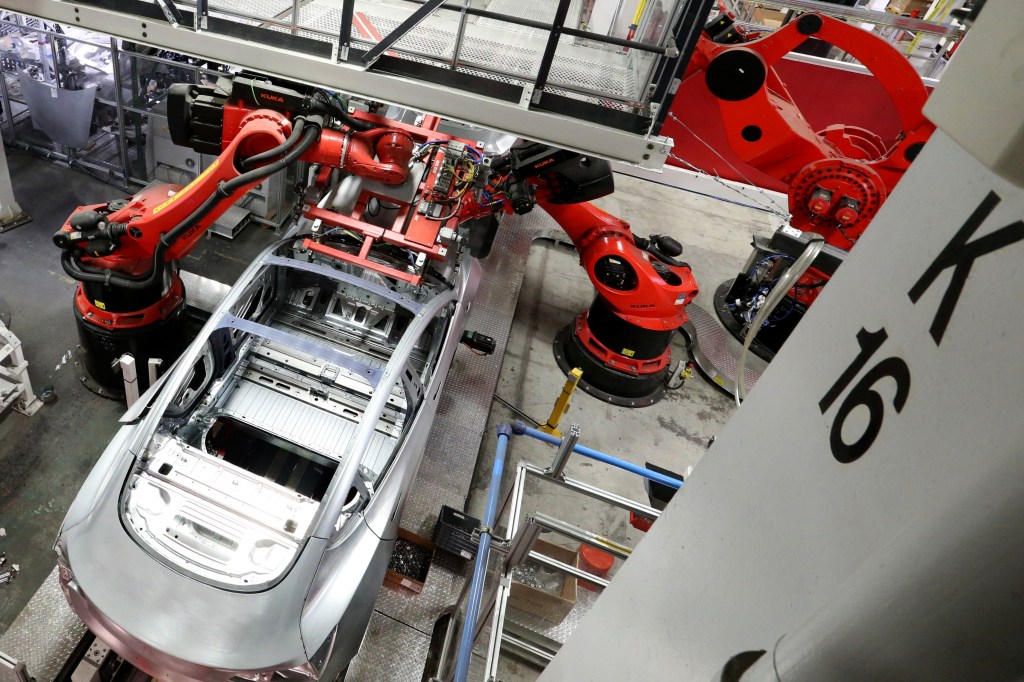California
Judge in Tesla case refuses to slash $3 million for Black worker over ‘awful’ racism in Fremont


A federal court judge cited “awful, pervasive racism” at Tesla’s electric car factory in Fremont as he shot down the company’s bid to halve a $3 million punitive-damages jury award to Black former worker Owen Diaz.
“Tesla’s actions were grievously reprehensible. Diaz was subjected to a grossly racist workplace, with racist conduct perpetuated not only by coworkers or subordinates but also — and perhaps especially—by supervisors,” Judge William Orrick wrote in a ruling this week.
Tesla sought to cut Diaz’s punitive damages award to $1,575,000, arguing that Orrick had erred in approving the $3 million.
Orrick wrote that the $3 million was “appropriate in light of the endemic racism at the Tesla factory and Tesla’s repeated failure to rectify it.”
Diaz sued the pioneering car maker headed by CEO Elon Musk in 2017 in U.S. District Court in San Francisco. A jury awarded him $137 million in damages in 2021. Orrick granted Tesla’s request to cut that award, and slashed it to $15 million. At the same time, the judge told Diaz he could accept the lower amount or agree to Tesla’s proposal for a new trial. Diaz took the new trial, which started in March and led to a $3.2 million award, including $3 million for punitive damages.
The judge’s ruling Wednesday put a renewed spotlight on long-running claims of rampant anti-Black racism at the Fremont plant where all four Tesla models are produced. Tesla is fighting numerous lawsuits by current and former workers and the California and federal governments, alleging Black workers faced egregious racism that Tesla failed to stop.
Tesla did not respond to requests for comment on the Diaz ruling. The company said in a 2022 blog post that it “strongly opposes all forms of discrimination and harassment” and claimed it “has always disciplined and terminated employees who engage in misconduct, including those who use racial slurs or harass others in different ways.”
Orrick wrote in his decision Wednesday that two of Diaz’s supervisors each addressed him dozens of times with a racist slur, and that Diaz had testified that one of them did so while threatening to attack him. A Black manager testified that he interviewed Diaz and the supervisor who allegedly threatened him, but did not interview an eyewitness “because he was told by his boss to stop the investigation before it was complete,” Orrick wrote. A Tesla human-resources representative testified that Tesla HR was never told of the incident. Diaz and the supervisor were both given verbal warnings, and the supervisor “still works at Tesla,” Orrick wrote.
The scale of alleged racist incidents at Tesla was revealed earlier this year by filings in a separate lawsuit against the company in Alameda County Superior Court by former Tesla contractor Marcus Vaughn. More than 200 current and former Black workers claimed in court filings that Black staff in Fremont were segregated into the hardest, most dangerous and lowest-paid jobs, and subjected to frequent racist treatment, language and graffiti.
Musk is not named as a defendant in the lawsuit, filed in 2017, but workers faulted him for allegedly setting a permissive tone and failing to take action over racism and harassment. A 2017 letter from Musk to employees, filed in the case, addressed treatment of workers he described as from “historically less represented” groups. “If someone is a jerk to you, but sincerely apologizes, it is important to be thick-skinned,” Musk wrote.
Orrick, while handing a loss to Tesla on Diaz’s damages, also dealt a double blow to Diaz, who was seeking a new trial based on misconduct by a lawyer for Tesla and purportedly insufficient damages. It was “indisputably improper” for the lawyer to repeatedly violate court orders by trying to read the jury an email concerning human feces found on a Black worker’s seat in a factory vehicle, Orrick wrote. But the lawyer’s actions probably damaged Tesla’s case far more than Diaz’s, the judge wrote.
Diaz, requesting a third trial, pointed to 10 examples of the Tesla lawyer’s conduct, including violating additional orders by Orrick in attempts to discredit Diaz in front of the jury. Orrick agreed that none of the examples were “excusable,” and “all of it was intentional.” But, he wrote, “The lawyer’s misconduct did not so permeate the entire trial to have influenced and prejudiced the jury,” and he denied Diaz a new trial over the lawyer’s behavior.
Diaz also argued in his motion for a new trial that the $3 million damages award was not enough to punish Tesla or deter similar behavior. Orrick wrote that Tesla will be punished “by the imposition of a damages award of over $3 million for its conduct toward a single individual,” and declined to order a new trial over the damages issue.













You must be logged in to post a comment Login